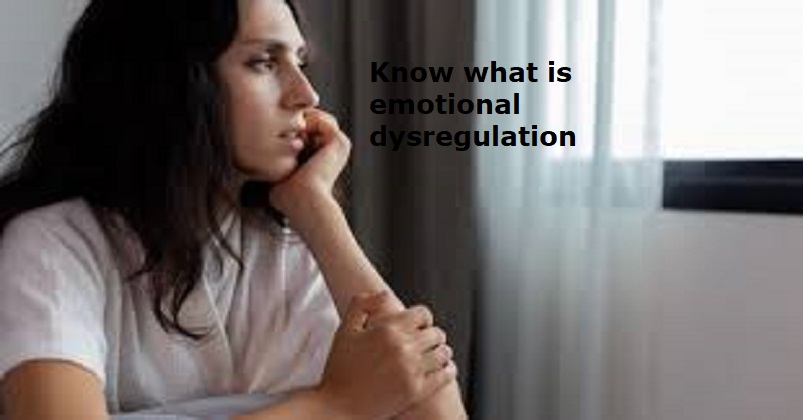
Emotional dysregulation is a term used to describe an emotional response that is poorly regulated and does not fall within the traditionally accepted range of emotional reaction. It may also be referred to as marked fluctuation of mood, mood swings, or labile mood.
When someone is experiencing emotional dysregulation, they may have angry outbursts, anxiety, depression, substance abuse, suicidal thoughts, self-harm, and other self-damaging behaviors.
Signs of emotional dysregulation include:
Severe depression
Anxiety
High levels of shame and anger
Self-harm
Excessive substance use
High-risk sexual behaviors
Extreme perfectionism
Conflict in interpersonal relationships
Eating disorder
Suicidal thoughts or attempts
Causes of Emotional Dysregulation:
Also Read: Know common marriage mistakes women make
Early childhood trauma: These are traumatic events experienced during the early years of a person’s life. This is deemed the most critical developmental period in human life.
Child neglect: A form of abuse from caregivers that results in a deprivation of a child’s basic needs, including the failure to provide adequate supervision, health care, clothing, or housing as well as other physical, emotional, social, educational, and safety needs.
Traumatic brain injury: A brain dysfunction caused by an outside force, usually a violent blow to the head.?
Chronic low levels of invalidation: This occurs when a person’s thoughts and feelings are rejected, ignored, or judged.
Disorders Related to Emotional Dysregulation:
PTSD: Post-traumatic stress disorder is a mental health condition caused by experiencing or witnessing a life-threatening traumatic event. It’s often characterized by severe emotional dysregulation. Symptoms may include flashbacks, nightmares, anxiety, uncontrollable negative thoughts, dissociation, and emotional numbing.
Borderline personality disorder: This is a mental health disorder that affects the way you think and feel about yourself and others, causing problems with functioning in everyday life. It includes self-image issues, difficulty managing emotions and behavior, and a pattern of unstable relationships.
Frontal lobe disorders: When the brain’s frontal lobes are damaged — usually due to injury — it can cause emotional dysregulation, impulsivity, lack of impulse control, attention deficit disorder, impaired decision-making, and lack of motivation.
Obsessive-compulsive disorder: Obsessive-compulsive disorder (OCD) is a mental illness that causes repeated unwanted thoughts, obsessions, or the urge to do something over and over again.
Treatment for emotional dysregulation may include one or more of the following:
Counseling: Typically this will include cognitive-behavioral therapy that combines strategies like mindfulness, acceptance, and emotional regulation.
Antidepressant medications:
Diet and exercise: This can help you ensure you get enough vitamins and nutrients so you can support your physical health while supporting a healthy mood and self-care routines.

Post Your Comments